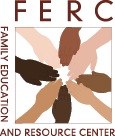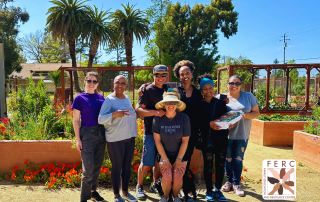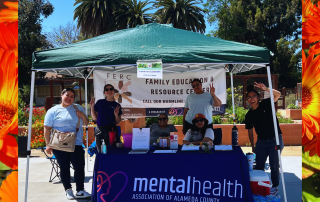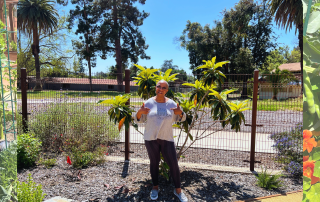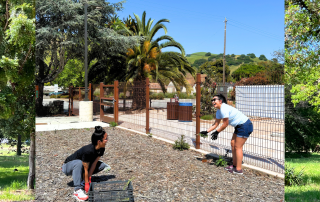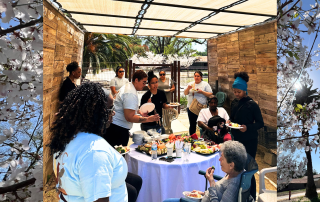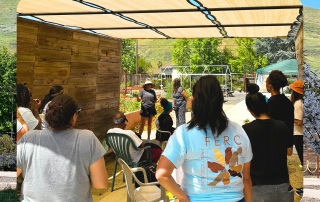Self Care
For the Caregiver
Caregivers often do not consider their own well-being as a priority. Providing financial and emotional support for a loved one can be a considerable responsibility. Family members may understandably feel frightened, fatigued, lonely, and stressed out. However, how can families expect their loved ones to be happy, healthy, and thriving if they themselves are not practicing self-care? We see burnout amongst the caregivers of loved ones too often. FERC strongly supports our families to be self-aware and practice self-preservation.
Contact
Family Education & Resource Center
7677 Oakport St. Suite 100
Oakland, CA 94621
Warm Line: (888) 896-3372
Office: (510) 746-1700

Open-Air Self-Care:
Free Monthly Event Series throughout Alameda County
FERC is the proud recipient of a Mental Health of America grant, in partnership with L.L.Bean. FERC was awarded this grant in order to increase free, safe, and communal self-care opportunities by enhancing our connection to the outdoors. With this grant, FERC was able to start the Open-Air Self-Care Monthly Event series. These events occur at different locations across Alameda County for a blissful outdoor self-care activity. FERC always provides beverages and breakfast, lunch, or filling snacks. FERC also provides gifts that help you continue using the self-care skills you learned.
April’s Event – Community Gardening: Planting the Seeds of Well-Being. We spent the afternoon at the wonderful Fremont LEAF Center: connecting with nature, enjoying healthy snacks and drinks, and connecting with our beautiful community. Participants walked away with a new gardening set, a book on caring for our native plants written by a local high school student, and new self-care tools in their wellness kit.
Join a Support Group
You’re Not Alone
We believe support groups are an important part of self-care for family members/caregivers. Support groups bring family members together to share their experiences as caregivers. Family members can give each other encouragement, and comfort, and share coping strategies. Support groups are helpful in creating non-judgmental spaces, reducing burnout, promoting empowerment, and receiving feedback and insight from people who understand. Visit a support group to take the first step toward investing in your self care.
“You were there for me when even my own family and friends didn’t know what to do anymore…not because they don’t love me…but they couldn’t understand what I was going through. Thank you for being there and helping us as a whole.”
Family Member
“I was about to give up. I’m glad I didn’t. My family is forever grateful to FERC.”
Father
“Knowing that you’re family members too – I know you GET IT. I don’t have to explain or defend myself…and that feels good.”
Mother
“You held the hope for us even when we didn’t think hope was even possible.”
Family Member
“Thank you for sharing that you too can empathize with my situation…I always felt alone and ashamed. You really made me understand that this is not only going on in my family…and it’s NOT our fault.”
Sister
Contact Us
To Get the Support You Need
Being a caregiver is hard, but you don’t have to do it alone. Family Education & Resource Center supports the families and caregivers of children, youth, adults, and seniors working through mental health challenges. Our dedicated team, extensive program offerings, peer support groups, and resource library are here to help you every step of the way. Contact us today to connect with an advocate.
